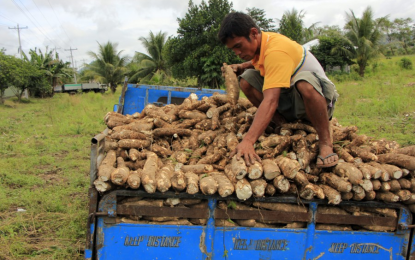
GROWING. San Miguel Foods records a steady growth in cassava yield in the first half of 2024, through its regenerative agriculture program. San Miguel Corporation (SMC) Chairman and CEO Ramon Ang said Thursday (Aug. 15, 2024) that the company recorded an increase of 44 percent in cassava yield. (Photo grabbed from Department of Agriculture Philippine Rural Development Project website)
MANILA – The regenerative agriculture program of San Miguel Foods has recorded a steady growth in cassava yields, boosting income for its extensive network of farmers nationwide.
In a press release Thursday, San Miguel Corporation (SMC) Chairman and CEO Ramon Ang said the program yielded 90,000 metric tons during the first half of the year, 44 percent higher than the yield posted during the same period last year.
Ang said that the company’s Cassava Assemblers Program, ongoing for many years now, and in place in more than half of all the provinces in the country, has steadily grown, resulting in higher yields.
Through the program, he said the market is guaranteed with purchase agreements, a fixed floor price, and comprehensive technical assistance.
“We continue to engage with, and encourage farmers to organize themselves and form small businesses, to assemble a minimum of 20 hectares of cassava plantation,” Ang said.
Regenerative agriculture is a holistic farming approach that focuses on restoring and enhancing the health of ecosystems, including soil, water, and biodiversity. It aims to create farming systems that are resilient, sustainable, and beneficial for the environment, farmers, and communities. (PNA)
